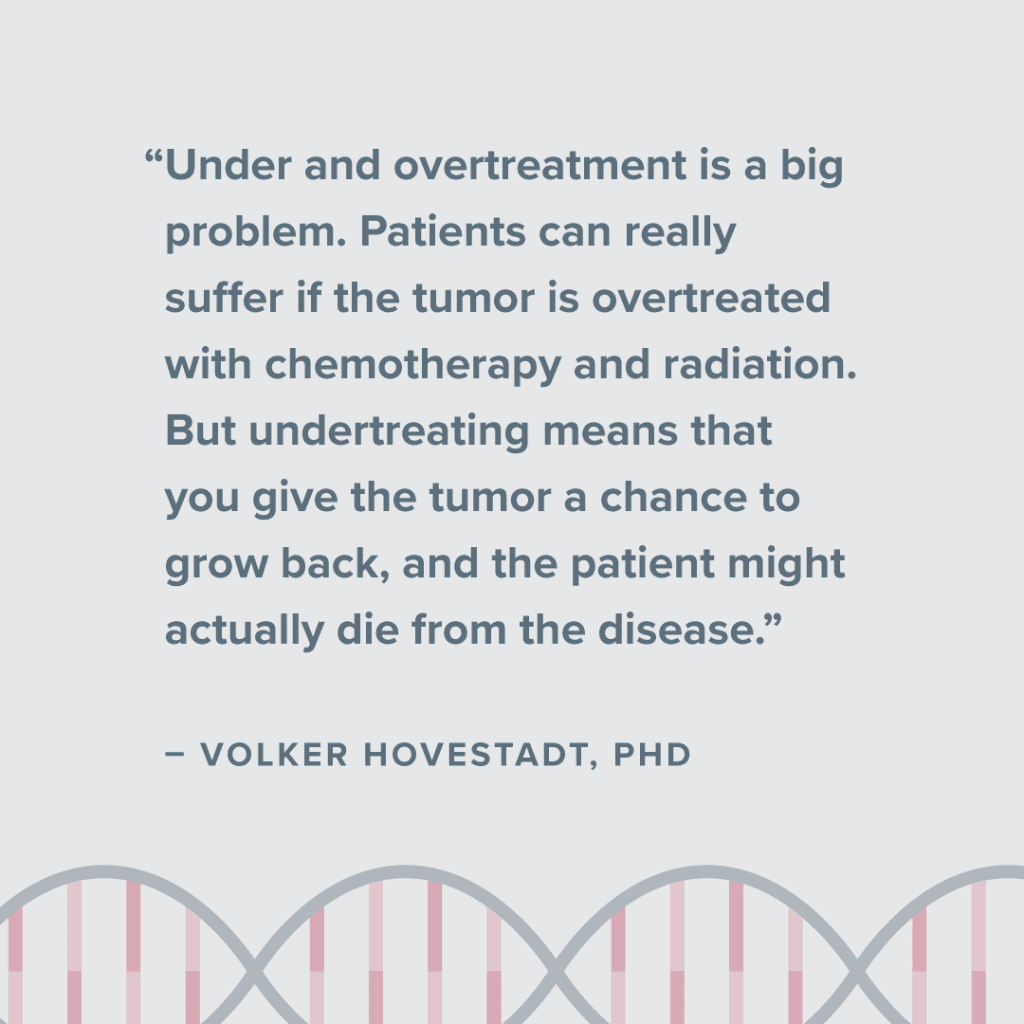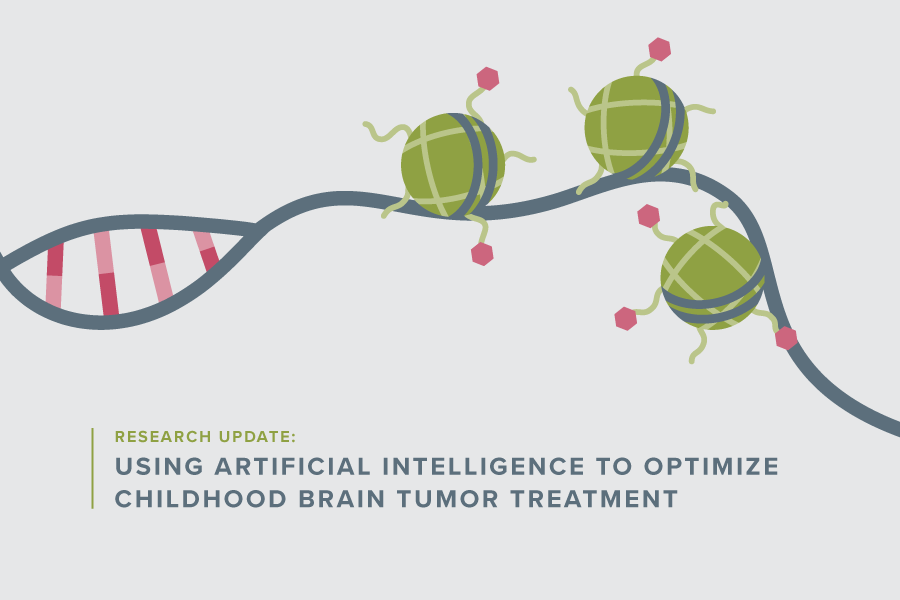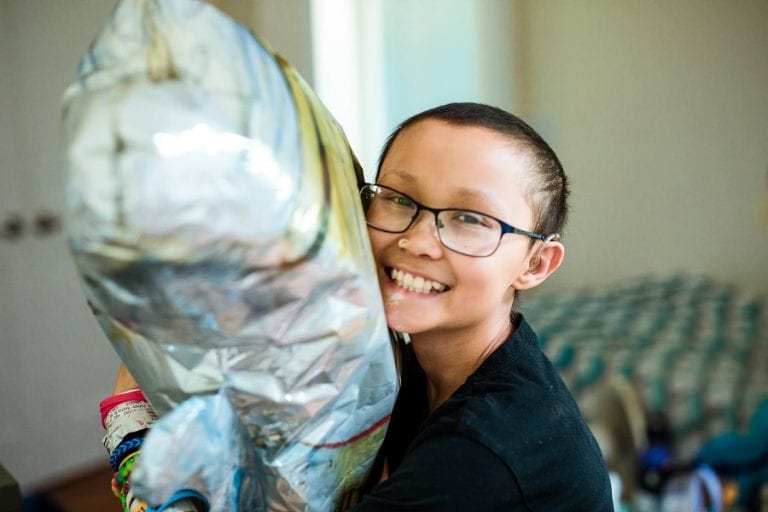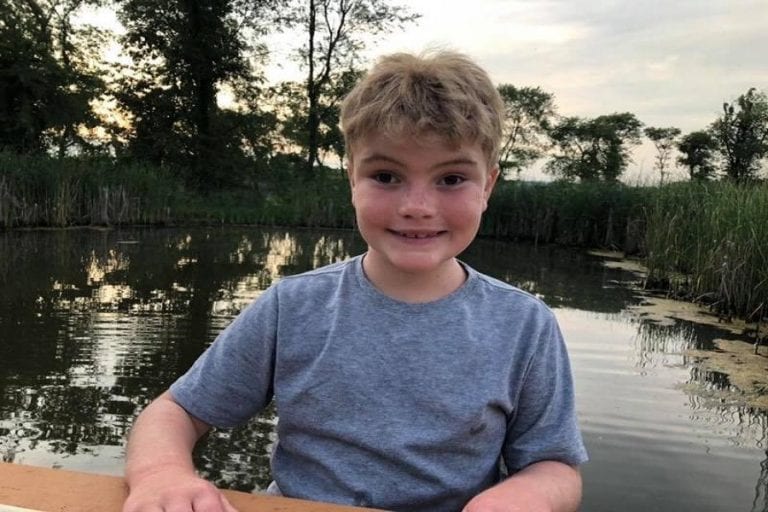Volker Hovestadt, PhD and researcher at Dana-Farber Cancer Institute plans to upgrade the way medulloblastoma, a fast-growing childhood brain tumor, is diagnosed and treated using artificial intelligence. He is a recent awardee of Children’s Cancer Research Fund’s Emerging Scientist Award, funding given to scientists with new, bold ideas. With the award, he will create first-of-its-kind technology.
According to the National Cancer Institute, brain tumors recently rose to be the most common cause of cancer-related death in kids. Those that survive can develop serious negative late-term effects including neurological and cognitive defects that can last a lifetime, heart problems and secondary cancers.
Unfortunately, harsh treatments are sometimes responsible for these bleak outcomes. “Under- and overtreatment is a big problem,” Dr. Hovestadt says. “Patients can really suffer if the tumor is overtreated with chemotherapy and radiation. But, undertreating means that you give the tumor a chance to grow back, and the patient might actually die from the disease. It is really important to have good predictions of how individual patients will do.”
For example, if the tumor is predicted to grow relatively slow, doctors could change course, reducing treatments that may cause cognitive issues in the future. “Typically, these predictions are based on a small number of clinical, histological and molecular parameters,” Dr. Hovestadt says.
Enter epigenomic techniques and advanced computer algorithms (artificial intelligence). “I propose to develop a novel computer model that utilizes half a million epigenetic markers that are measured in tumor tissues from patients,” he says. “Epigenetic markers control the activity of a particular gene to turn it on or off.”
Each of these epigenetic markers may contain information about how the cancer will behave and grow, and they could tell doctors which treatment option would be best to take. It is nearly impossible for an individual to fully grasp the best decision to make by looking at these markers manually.
According to Dr. Hovestadt, their machine learning algorithms can automatically “learn” complicated combinations of epigenetic markers that provide accurate predictions in a much better way than humans could do. “Asking the computer to find out what’s in the molecular profile that’s predictive of outcomes is a new way to approach these data sets and how to make good use of them,” he says.
Essentially, his newly developed computer model predicts how a child’s tumor will behave, and doctors could utilize the tool to make better treatment decisions.
The result: better quality of life for kids facing brain tumors.
Dr. Hovestadt’s team gathered data from more than a thousand patient samples from clinical trials, and, thanks in part to funding from Children’s Cancer Research Fund, this research will be one of the earliest examples of this kind of technology in action.
“The resulting prediction model will be a valuable tool in research and clinical practice with the potential to improve treatments and lives of children with brain tumors,” he says. “I’m excited to make something that is clinically useful, and the potential benefit for kids with these kinds of tumors is great.”
Your donation supports Emerging Scientists
By donating to Children’s Cancer Research Fund, you’re giving emerging scientists the support they need to put their great ideas into practice. Learn more about CCRF's commitment to funding researchers early in their careers.




